Introducing the Samoyed Dog
Find out everything you need to know about the Samoyed: its characteristics, its behavior, its education, its price.
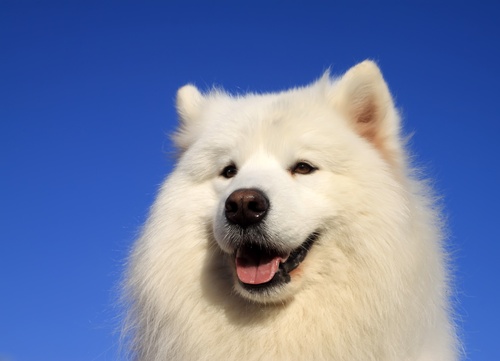
Find out everything you need to know about the Samoyed: its characteristics, its behavior, its education, its price.
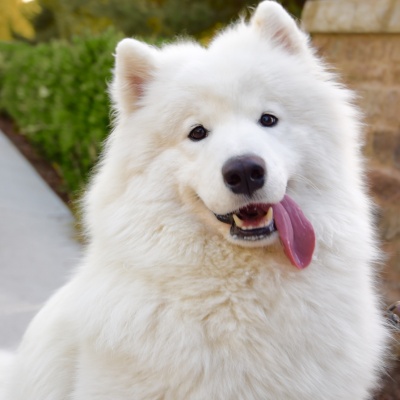
The Samoyed Dog, originally bred by the nomadic Samoyede people in Siberia, is a breed known for its beautiful fluffy white coat and friendly, smiling face. Today, the Samoyed is one of the most loved and popular breeds worldwide, recognized for its gentle temperament and striking appearance.
Samoyeds are not just pretty faces; they are brave dogs with many strengths. They excel in various areas such as sledding, herding, and even search and rescue operations. These dogs are known for their loyalty and affectionate nature, making them excellent companions for families and individuals alike. They are highly sociable and thrive on human interaction, often displaying their affection through constant companionship and playful behavior.
This section outlines the unique features of the Samoyed dog breed.
The Samoyed Dog belongs to the Working Group, which includes breeds originally bred for tasks like guarding, pulling sleds, and water rescues. They are known for their strength and intelligence, and the Samoyed, in particular, is friendly and alert.
The Samoyed is a medium to large-sized dog. They generally stand between 19 to 23.5 inches tall at the withers and weigh between 50 to 65 pounds.
Samoyeds have a long, dense coat that consists of a soft, woolly undercoat and a harsher outer coat. This double-layered fur provides excellent insulation against the cold.
While the Samoyed is best known for its white coat, their fur can also be cream or biscuit-colored. These shades can sometimes appear as variations within the same coat.
Samoyeds adapt well to both rural and urban environments, provided they get enough exercise. They do best in homes with access to outdoor space where they can run and play.
Samoyeds are very sociable and friendly dogs. They are great with children and usually get along well with other pets, because of their affectionate nature makes them excellent companions.
Samoyeds are generally healthy dogs, but they can be prone to certain health issues such as hip dysplasia and allergies. Regular check-ups and a healthy diet are essential for maintaining their well-being.
The Samoyed is an intelligent and eager-to-please breed, making them relatively easy to train. However, they can be a bit stubborn, so training should be conducted with patience and positive reinforcement.
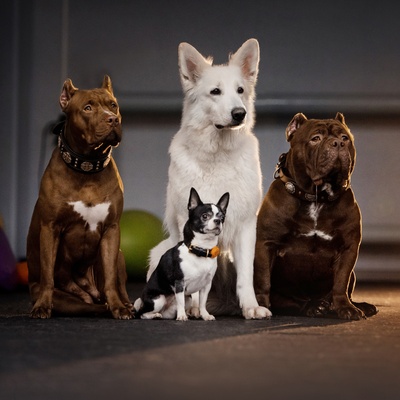
We can help!
Every dog has its own character, and so do you. Making the right choice will ensure his well-being and yours.
Take our quiz to find out which breed is right for you, based on your personality, lifestyle, location and many other criteria.
Don't wait any longer and take the quiz to find out the answer!
The Samoyed Dog is medium to large-sized, well-balanced, and elegant, known for its thick, fluffy white coat and perpetually smiling face.
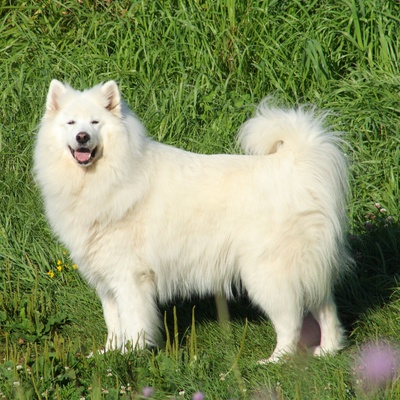
Samoyeds are one of the larger breeds. Females typically measure between 19 and 21 inches, while males stand between 21 and 23.5 inches tall at the withers. Females usually weigh between 50 and 60 pounds, and males range from 60 to 70 pounds.
Samoyed puppies grow relatively quickly, reaching about half their adult weight by six months. By their first birthday, they are close to their final size, with full maturity and weight usually reached by 18 to 24 months.
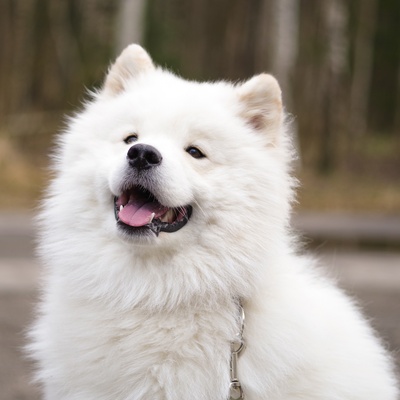
The Samoyed Dog boasts a long, dense coat that is soft and fluffy. Their fur consists of a wooly undercoat and a harsher outer coat, providing excellent insulation against the cold. The outer coat is straight and stands out from the body, giving them a characteristic fluffy appearance.
The Samoyed Dog has a specific color palette that includes white, cream, and biscuit. These shades can sometimes blend within the same coat, creating a beautiful, shimmering effect.
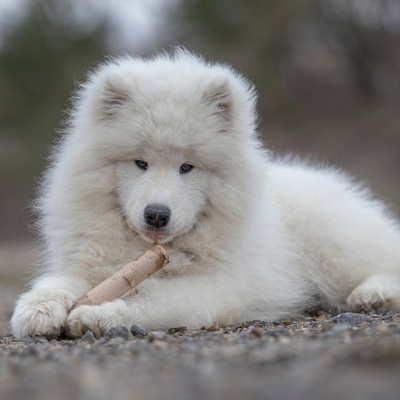
The Samoyed's coat is long and thick with a dense undercoat. This breed sheds moderately year-round, with heavier shedding in spring and autumn. Regular grooming is essential; brush at least twice a week, and daily during shedding seasons, to prevent mats and remove loose fur. Occasional baths, every three to four months, keep their coat clean and soft.
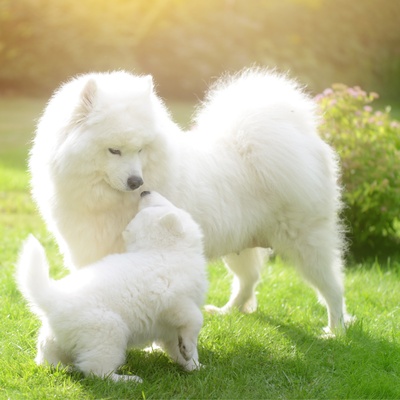
The Samoyed Dog is balanced and well-proportioned. They have a broad, wedge-shaped head with a distinctive smile and dark brown, almond-shaped eyes. Their triangular ears are set high and stand erect. The body is strong and muscular with a deep chest and a slightly arched neck. Their bushy tail curls over the back, enhancing their charming appearance.
Samoyeds are known for their loyalty, friendliness, and affectionate nature. They are sociable and thrive on human companionship.

There are around 400 registered dog breeds, divided into 10 groups. The Samoyed belongs to the Working Group, which includes breeds like Huskies and Malamutes. These dogs are known for their strength, intelligence, and task-oriented nature. Samoyeds are friendly, gentle, and versatile, originally used for herding reindeer and pulling sleds.
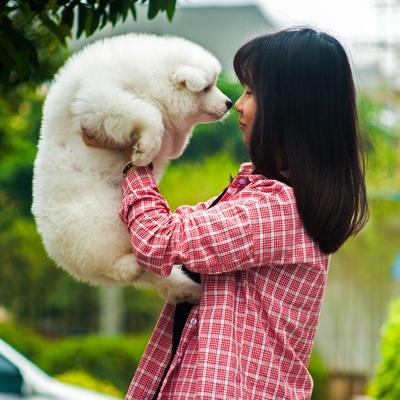
Samoyeds are known for their delightful and engaging behavior. They are extremely affectionate dogs who love to show their love for their owners. Samoyeds thrive on companionship and need an owner who is present and attentive to ensure their emotional well-being.
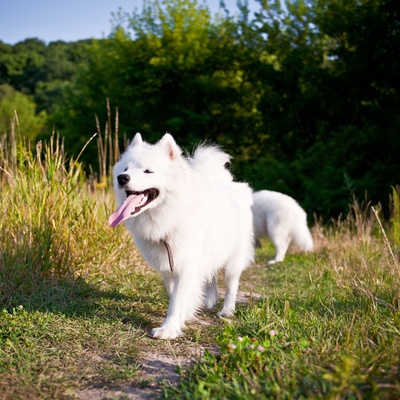
Samoyeds are highly sociable and generous dogs. They get along well with humans and are excellent companions for children. Their friendly and tolerant nature makes them ideal family pets. However, it's important to work on their social skills from a young age to ensure they grow up to be well-rounded dogs.
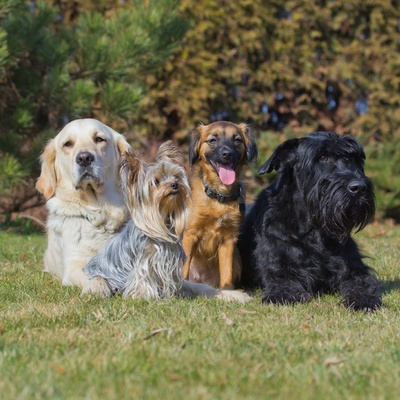
Take the test and find out the dog breed that matches your personality and lifestyle.
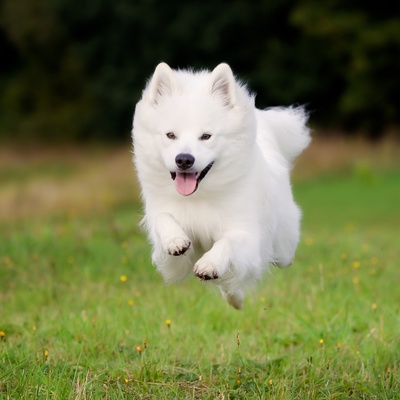
Samoyeds have the potential to adapt to different living situations, whether it be an apartment, house, urban, or rural environment. However, they require a lot of attention and love from their owners to thrive. Samoyeds need at least two walks a day, each lasting about 30 minutes, to keep them happy and healthy.
While adaptable, Samoyeds benefit greatly from an outdoor environment where they can satisfy their curiosity and expend energy freely. They love to explore and play, so access to a garden or nearby park is ideal to keep them mentally and physically stimulated.

Samoyeds are intelligent and quick learners, responding well to positive reinforcement with rewards and praise. Consistency and patience are key due to their independent nature. Using a GPS collar, like a Weenect GPS tracker, can help prevent escapes.
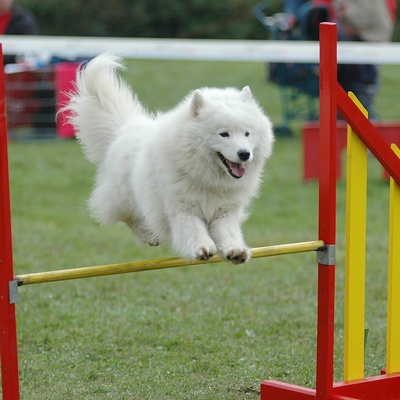
Samoyeds have good listening skills but can be independent. Early training and socialization are crucial. They thrive on interaction and structured training, making them obedient and well-rounded companions.
The Samoyed Dog is generally a healthy breed, but daily care is essential to prevent diseases and infections. Regular grooming, balanced nutrition, and frequent veterinary check-ups are key to maintaining their overall well-being.

Samoyeds are typically robust and healthy. However, they can be prone to certain health issues such as hip dysplasia, progressive retinal atrophy, and hypothyroidism. These conditions can lead to joint pain, vision loss, and metabolic imbalances, respectively. The average lifespan of a Samoyed is between 12 and 14 years.
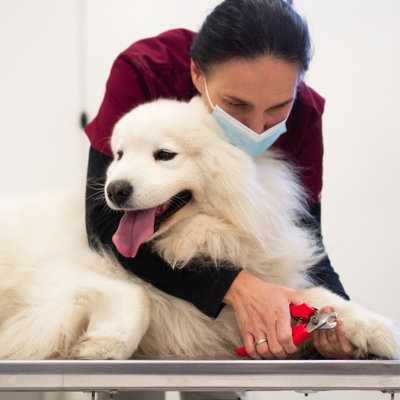
Regular veterinary care is crucial for Samoyeds. They need vaccinations, deworming, and parasite treatments as recommended by the vet. Daily care includes brushing their thick coat to prevent matting, cleaning their ears, brushing their teeth, and trimming their nails. It's also important to monitor for potential allergies and consult a vet for appropriate recommendations. Samoyeds are not a hypoallergenic breed.
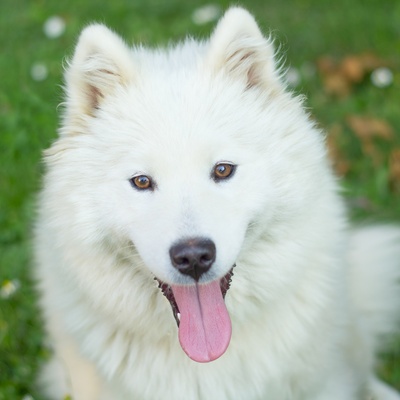
Samoyeds, like all dogs, have specific nutritional needs that require a balanced diet to maintain their vitality and strength. Proteins and vitamins are essential components of their diet. Premium kibble, formulated for the breed, provides a balanced dietary foundation. If additional protein is needed, you can supplement their diet with lean white and red meat while ensuring fats are limited to maintain their health.
The Samoyed is a well-regarded breed with several breeders available. It's important to consider several factors before adopting.
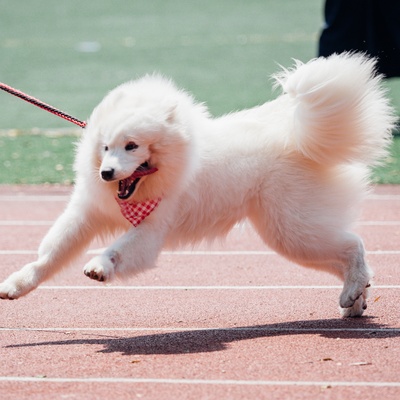
Before adopting a Samoyed Dog, there are some important points to consider. First and foremost, you need to check that the breeder is reputable. This means visiting the breeder's premises to assess the living conditions and behavior of the dogs. Responsible breeders will provide transparent information about the puppy's health and any genetic illnesses in its lineage.
Lastly, mandatory electronic identification, like microchipping, is not always mandated at the federal level in the United States for cats and dogs. But microchipping is widely acknowledged as a successful way to permanently identify pets and increase the possibility of reuniting lost pets with their owners, even in the absence of universal regulations. As a pet owner, it is advised to inform yourself about municipal laws to ensure the safety and wellbeing of your pet.
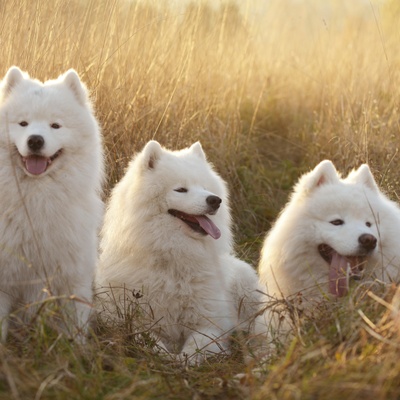
The cost of a Samoyed puppy can vary based on several factors such as lineage, pedigree, breeder reputation, and age. Typically, a Samoyed puppy costs between
$ 1300
and
$ 2200
Additionally, maintaining a Samoyed involves annual expenses, including veterinary fees and food, which amount to approximately
$ 1550
to
$ 1800
a year.